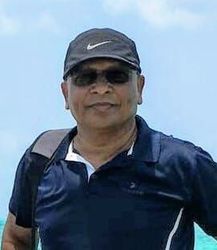We are going through a phase of extreme turmoil and uncertainty in this tiny land mass of about 32sqkm, scattered over close to a million square kilometres of sea. Just 10 of the 36 tiny islands are inhabited—by around 65,000 people.
Extending from about 250km towards the west of Mangaluru in the north to about the same distance to the west of Thiruvananthapuram in the south, the Lakshadweep Sea is very important to our national security and economy. A major shipping lane passes through this area, so does a flight path for commercial international air traffic. As the whole area is under intense scrutiny of the Indian Navy and Coast Guard, an unchecked intrusion is next to impossible. Also, a strategic base of the US Navy lies not too far south of this territory—in Diego Garcia.
If I remember correctly, there have been just about three major incidents so far, and all intruders were apprehended and jailed. One was an Iranian vessel intercepted near Androth waters; there was the Somali vessel near Minicoy; and, recently, a Sri Lankan fishing vessel near Minicoy. Manned by Lankans, this boat was carrying drugs, weapons and ammunition from Iran to Sri Lanka. Notwithstanding these facts, some parties are now blaming the islanders for these intrusions.
It is important that people living in border areas are kept satisfied and happy for our selfish security interests. It is a known fact that the earliest warning about enemy intrusion in Kargil was reported by goat herders or the Bakarwals there. The simple folk in Lakshadweep are, in practice, our eyes and ears on a very porous border. Antagonising and alienating them will only add to our security woes, not reduce it.
Another aspect is that the whole of Lakshadweep is a fragile ecosystem with an average height of about 8ft above sea level. Any development that does not cater to sustainability will render it useless and uninhabitable in no time. There are islands that have sunk in our times.
I would hence urge the powers that be to exercise extreme caution while dealing with issues that affect centuries-old customs and practices of islanders. Those in authority should heed to the people who are directly affected by such unscientific, unsustainable and devastating programmes in the name of development. What if nobody is left in these atolls when the deed is done? One cannot rule over a graveyard.
—The author is the first Army officer from Lakshadweep.



